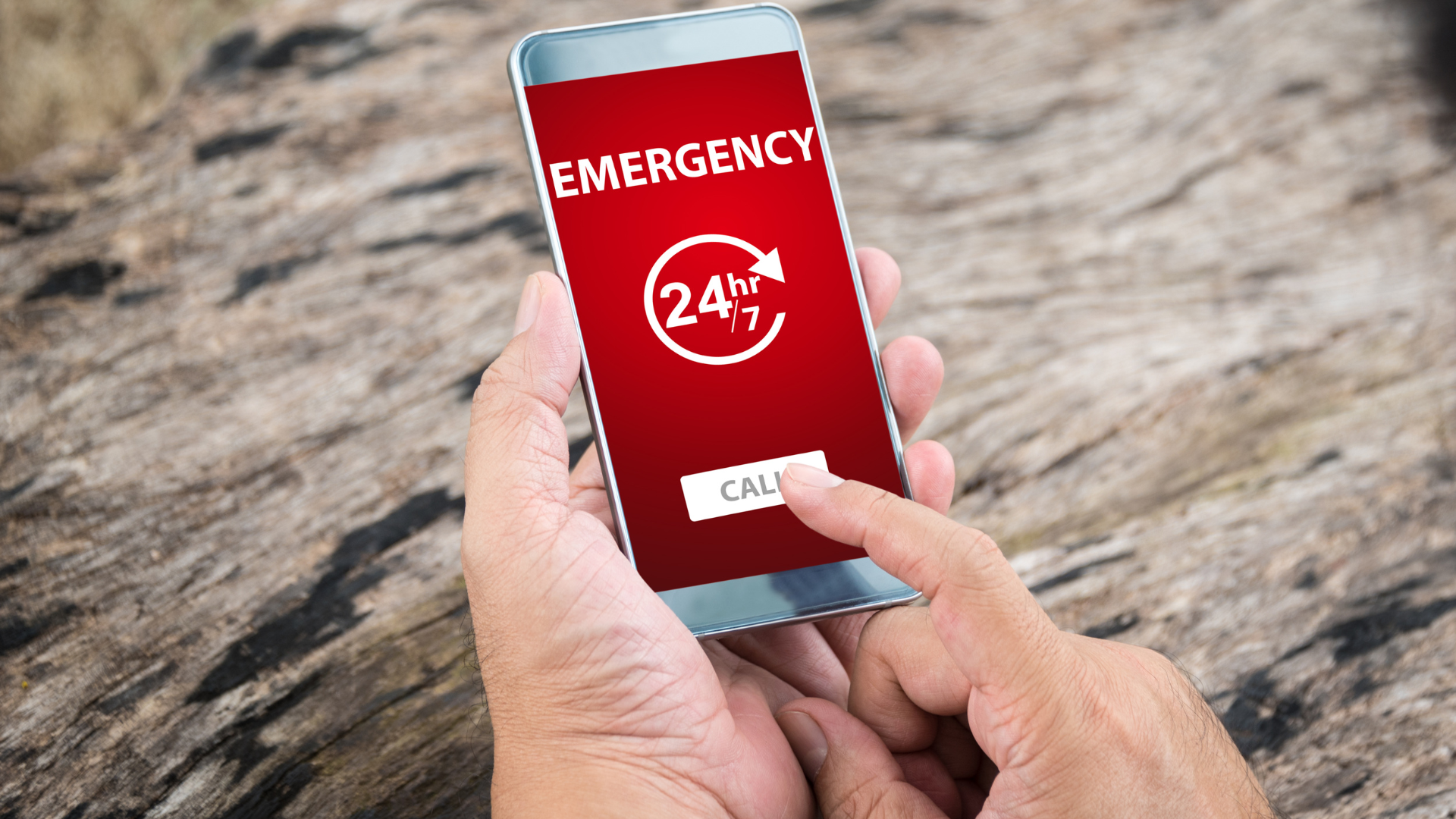Emergency Dentist in Midland TX
IMMEDIATE CARE WHEN YOU NEED IT
Dental emergencies can be sudden, frightening, and often inconvenient. If you or your child is experiencing serious oral related pain or injury and are in need of an emergency dentist in Midland, please don't hesitate to contact our dental office as soon as possible. Our team will do everything we can to see existing patients and their families as soon as possible from the time of your initial call for emergency dentistry in Midland, TX. And in the meantime, we will try to provide guidance for how to best manage your emergency and minimize your discomfort.
WHY CHOOSE JOHN K. DRISDALE D.M.D. FOR EMERGENCY DENTAL CARE?
Immediate Attention: We prioritize emergency cases with swift scheduling to ensure that you receive the care you need when you need it most. Unlike typical delays, our dedicated team is prepared to assist you with immediate treatments.
Comprehensive Care: From severe toothaches to accidental injuries, our office is equipped with the latest technology to handle a variety of dental emergencies. This includes services such as tooth extractions, root canal therapy, and more, all performed under one roof for your convenience.
Pain Management: Dental pain can be overwhelming; hence we offer advanced pain management options to make your treatment as comfortable as possible. Options include local anesthesia and sedation for a pain-free experience.
Experienced Staff: Led by John K Drisdale DMD, our team brings years of experience in emergency dentistry. Our professional approach combines expertise with a compassionate touch to ensure the best outcome for your dental health.
Patient Comfort: Recognizing the stress that comes with emergency dental visits, our clinic is designed to create a calming atmosphere. We provide a soothing environment that helps ease the anxiety associated with dental procedures.
Follow-Up Care: We believe in comprehensive care that extends beyond immediate treatment. Our follow-up ensures your recovery is on track and any further dental needs are addressed, preventing future emergencies.
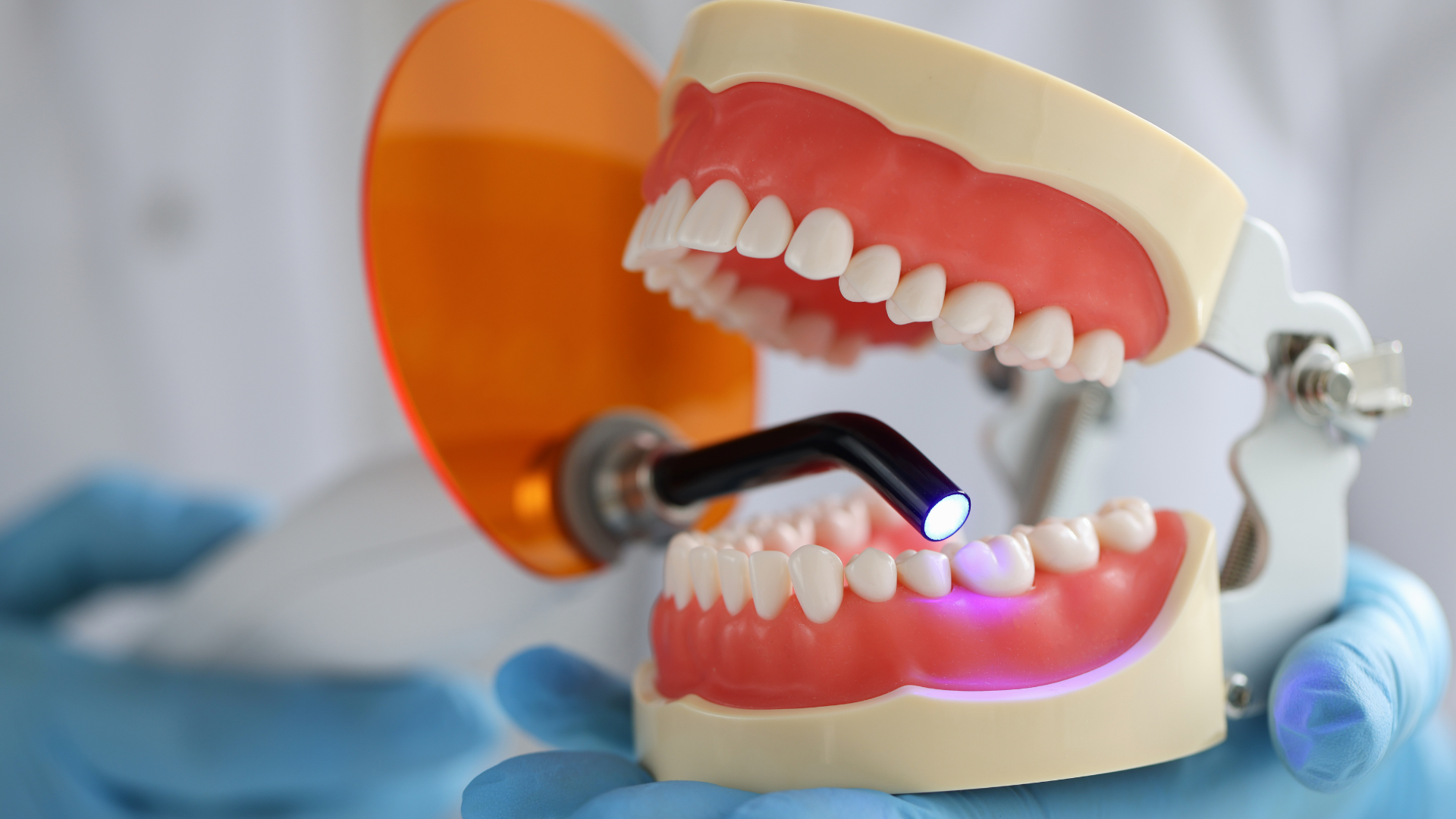
We Treat Patients of All Ages
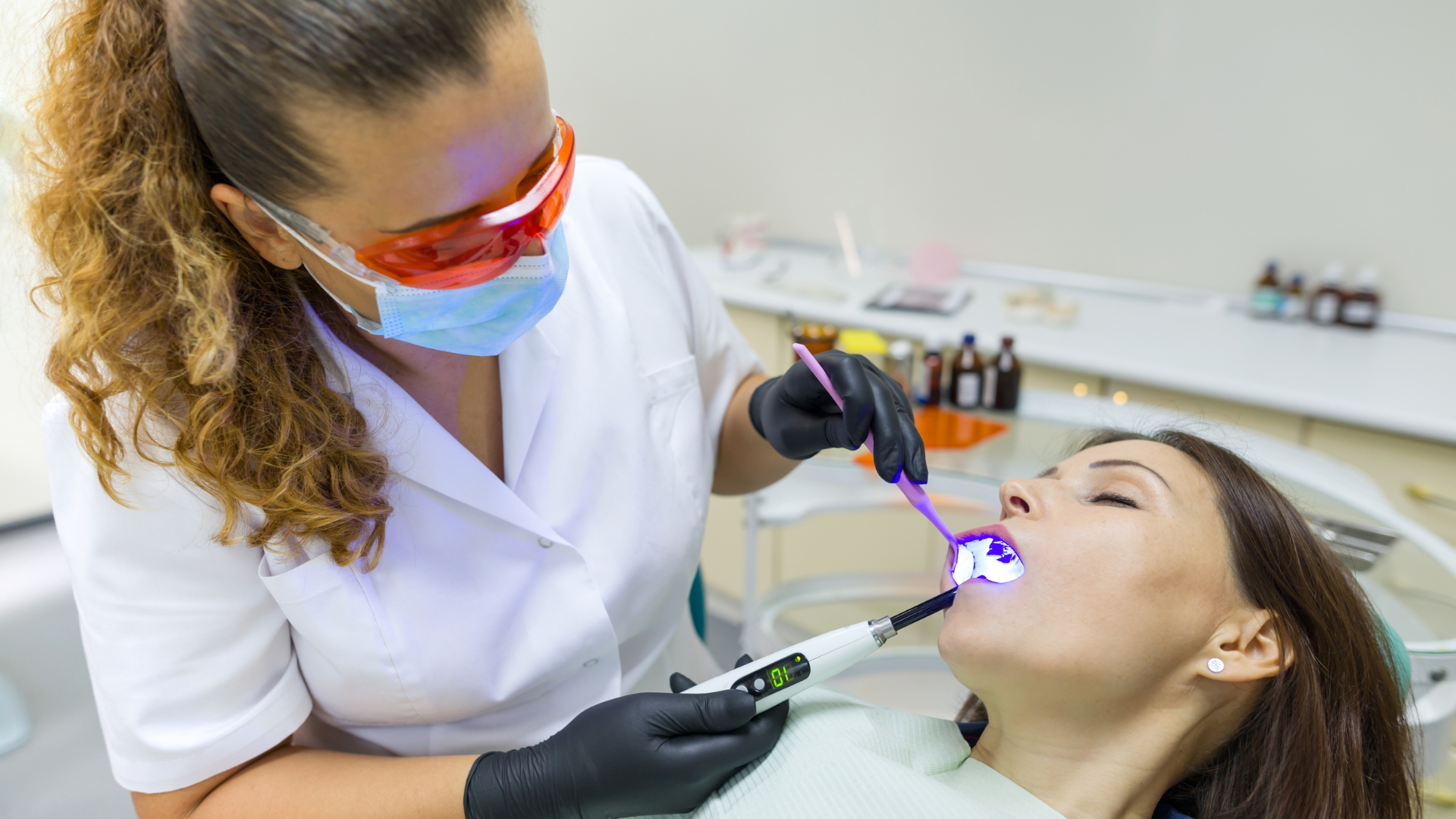
Multiple Dental Sedation Methods Available
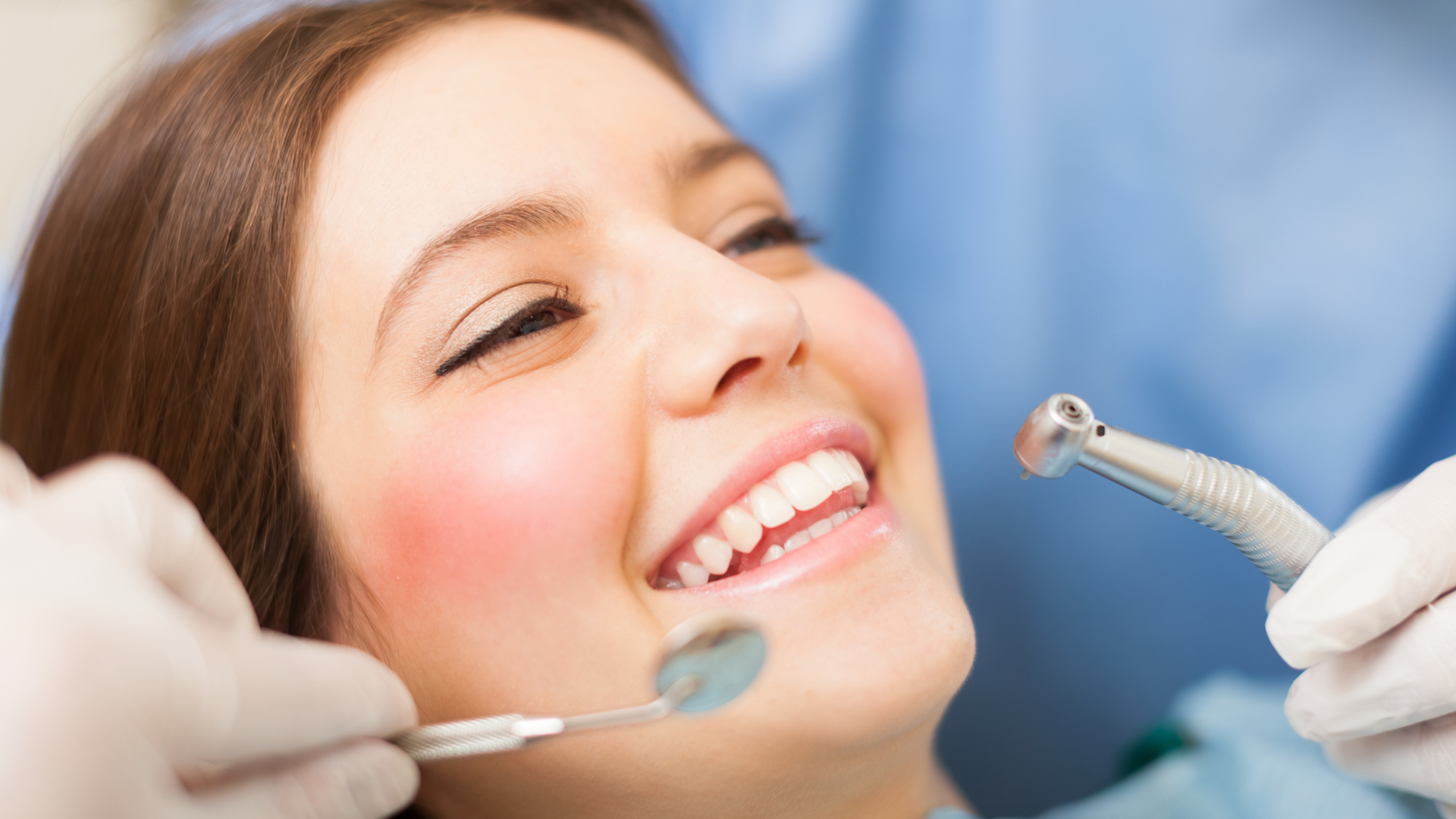
Fast Treatment for Patients in Discomfort
HOW WE TREAT DENTAL EMERGENCIES
- Get an appointment scheduled ASAP: After you call our dental practice, our team members will do everything they can to get you scheduled for an appointment. Ideally, we’ll ask you to come in the same day you contact us. In the meantime, we’ll be ready to offer you first-aid tips over the phone to help manage your situations ahead of your arrival.
- Complete a detailed emergency exam: When you arrive at our office, we’ll bring you to one of our operatories, perform an emergency exam, capture digital X-rays (if needed), and confirm the source and extent of your symptoms.
- Stopping discomfort, reviewing our findings: We’ll go over your findings with you directly so you know exactly what’s going on with your oral health. We’ll also work to get you out of any immediate discomfort so you can have a clear head during this process. We’ll break down your estimated costs and expected timeline so you can set expectations before making any decision on your future care.
- Scheduling your future dental visits: No matter what treatment you need to address your dental emergency, whether it’s a dental filling, crown, root canal therapy, extraction, or another service, we’ll work quickly to get it completed.
Professional Cleaning
Your Professional Dental Hygienist
Dr. Drisdale will recommend professional cleaning a minimum of twice a year, to as many as 4 times a year, depending on your individual dental health care needs.

THE MOST COMMON DENTAL EMERGENCIES
Feeling scared or unsure of what to do when a dental emergency occurs? Whether it is a broken tooth, abscess, busted lip, or severe toothache, all you can think about is getting relief from the pain. Dr. John Drisdale and his team understand, which is why they want to ensure you have what you need to care for your problem until you’re able to reach our dental office. If you’re ready to feel a bit more confident the next time an injury occurs, here are a few tips on how to handle common dental emergencies in Midland, TX.
Severe Toothache
Does it Require Emergency Care?
Yes. Persistent and severe tooth pain may indicate an infection, a deep cavity, or even an abscess. If left untreated, tooth pain can lead to further complications, so seeking emergency care is essential.
How You Should Handle It:
- Rinse your mouth with warm water and floss gently to remove any food particles or debris that may be causing irritation.
- Apply a cold compress to the outside of your cheek to reduce swelling.
- Take over-the-counter pain relievers to help manage the discomfort until you can visit us.
How We Treat It:
We will thoroughly examine your tooth to determine the cause of the pain, which could be due to an infection, tooth decay, or damage. Depending on the severity, we may perform a root canal, place a filling, or extract the tooth if necessary.
Knocked-Out Tooth
Does it Require Emergency Care?
Yes. A knocked-out tooth is a dental emergency, and acting quickly is key to saving the tooth. The sooner you visit us, the better the chances of successfully re-implanting the tooth.
How You Should Handle It:
- If the tooth is intact, hold it by the crown (the top part) and rinse it gently with water, avoiding scrubbing or touching the root.
- If possible, place the tooth back into its socket and bite down gently to hold it in place.
- If you can't reinsert the tooth, place it in a container of milk, saline solution, or your own saliva to preserve it until you reach our office.
How We Treat It:
Our team will assess the tooth and socket to determine if re-implantation is possible. If successful, we’ll stabilize the tooth and monitor it for signs of infection or complications. In cases where re-implantation isn’t possible, we may discuss dental implant or bridge options to restore your smile.
Cracked or Broken Tooth
Does it Require Emergency Care?
Yes. A cracked or broken tooth can cause pain and expose the tooth to further damage or infection. Prompt treatment helps prevent additional harm.
How You Should Handle It:
- Rinse your mouth with warm water to clean the area and apply a cold compress to reduce swelling and discomfort.
- Avoid chewing on the side of the broken tooth.
- If there are any sharp edges, you can cover them with dental wax or sugar-free gum to prevent irritation to your mouth.
How We Treat It:
We will assess the extent of the crack or break and determine the appropriate treatment. This could include dental bonding, a crown, or, in more severe cases, a root canal or extraction. Our goal is to restore both function and appearance, ensuring your tooth is protected.
Lost Filling or Crown
Does it Require Emergency Care?
Yes. A lost filling or crown exposes the tooth to further damage, decay, or sensitivity. It’s important to address this issue as soon as possible to prevent complications.
How You Should Handle It:
- Avoid chewing on the affected side of your mouth.
- If the filling or crown is still intact, bring it with you to your appointment.
- You can temporarily cover the exposed area with dental wax or a piece of sugar-free gum to protect the tooth.
How We Treat It:
We will assess the tooth and determine if the lost filling or crown can be reattached or if a new one is required. In some cases, a root canal may be necessary if the tooth has been exposed to bacteria.
Dental Abscess
Does it Require Emergency Care?
Yes. A dental abscess is a severe infection that can spread to other areas of the body if not treated. Immediate care is required to prevent further complications.
How You Should Handle It:
- Apply a cold compress to reduce swelling and pain.
- Rinse your mouth with warm saltwater to help reduce infection and alleviate discomfort.
- Avoid squeezing or pressing on the abscess.
How We Treat It:
We will drain the abscess, clean the area, and, depending on the severity, either perform a root canal or remove the infected tooth. Antibiotics may also be prescribed to clear the infection and prevent it from spreading.
Broken Braces or Orthodontic Appliances
Does it Require Emergency Care?
Yes. Broken braces or appliances can cause discomfort and delay your orthodontic treatment. Prompt attention is needed to avoid further complications.
How You Should Handle It:
- If a wire or bracket is poking into the inside of your mouth, cover the sharp end with orthodontic wax or a small cotton ball.
- Avoid trying to adjust the braces yourself, as this can cause further damage.
How We Treat It:
We will repair or replace the damaged braces or appliances to ensure that your treatment continues on schedule. This may involve reattaching a bracket, adjusting the wire, or replacing an appliance entirely.
Tooth Sensitivity
Does it Require Emergency Care?
Tooth sensitivity can be the result of enamel wear, gum recession, cavities, or cracks. While not always an immediate emergency, if you’re experiencing sudden or severe tooth sensitivity, it may indicate a more serious problem that requires prompt attention.
How You Should Handle It:
- Use a toothpaste designed for sensitive teeth, which can help alleviate discomfort.
- Avoid consuming extremely hot or cold foods and drinks until you can see your dentist.
How We Treat It:
We’ll assess the cause of your sensitivity, which could be from cavities, cracks, gum disease, or even tooth grinding. Treatment may include fluoride treatments, dental sealants, filling cavities, or addressing any underlying conditions like gum disease.
Loose or Lost Dental Appliance (Dentures or Bridges)
Does it Require Emergency Care?
Yes, a loose or lost dental appliance like dentures or a dental bridge can be a significant issue, especially if it causes discomfort or interferes with daily functions like speaking and eating.
How You Should Handle It:
- If a denture or bridge becomes loose, avoid trying to fix it yourself, as this can cause damage.
- If it's completely lost, bring the appliance with you to your appointment for an assessment
How We Treat It:
We’ll examine your appliance to determine if it can be repaired or if a new one is needed. For bridges, if the appliance is broken, we may need to replace it or create a new one. If dentures are loose, we may need to adjust them for a better fit.
Swollen or Bleeding Gums
Does it Require Emergency Care?
Yes. Swollen or bleeding gums may indicate gum disease (gingivitis or periodontitis), an abscess, or another infection that requires prompt care to avoid more severe complications.
How You Should Handle It:
- Rinse your mouth with warm salt water to reduce swelling and remove bacteria.
- Avoid irritants like tobacco, spicy foods, or alcohol that may worsen the condition.
How We Treat It:
We’ll evaluate the extent of gum disease or infection and recommend appropriate treatments such as deep cleaning (scaling and root planing), antibiotics for infection, or gum surgery if necessary.
Traumatic Oral Injury (Jaw or Soft Tissue Injury)
Does it Require Emergency Care?
Yes. Any trauma to the jaw, lips, cheeks, tongue, or other soft tissues can cause significant bleeding, swelling, and discomfort. Immediate treatment is necessary to prevent infection and further complications.
How You Should Handle It:
- Apply a cold compress to reduce swelling and bleeding.
- If the injury is to the tongue or cheeks, try to clean the wound with clean water to prevent infection.
How We Treat It:
Depending on the extent of the injury, we may stitch the wound, prescribe antibiotics, or perform a more extensive treatment to address jaw fractures or serious soft tissue damage. If the jaw is fractured, an X-ray will help determine the best course of action, which may include surgery.
Severe Tooth Discoloration (Sudden Change in Color)
Does it Require Emergency Care?
While not typically considered a classic dental emergency, significant, sudden changes in tooth color—such as a tooth turning dark or black—may indicate an infection, trauma, or even a dead tooth that requires immediate care.
How You Should Handle It:
- Avoid chewing on the affected tooth.
- Use over-the-counter products to manage pain or discomfort if the tooth is sensitive.
How We Treat It:
If a tooth turns dark due to trauma or infection, we may perform a root canal to remove the infection and restore the tooth's appearance. If the tooth has died, we may recommend crown placement or, in severe cases, tooth extraction and replacement.
Tooth Displacement or Luxation (Tooth Is Partially Displaced)
Does it Require Emergency Care?
Yes. A partially displaced tooth, where the tooth is loose or pushed out of alignment, requires immediate care. If untreated, it can lead to tooth loss or further injury.
How You Should Handle It:
- Gently try to realign the tooth if possible, but avoid applying too much pressure.
- Use a cold compress to reduce swelling and pain, and avoid chewing on the affected side.
How We Treat It:
Depending on the extent of the displacement, we will reposition the tooth and secure it with a splint if needed. If the tooth is loose or partially dislodged, a root canal may be necessary to save the tooth.
Abscessed Gums or Abscess in the Mouth
Does it Require Emergency Care?
Yes. A dental abscess is a serious infection that can cause severe pain, swelling, fever, and even difficulty swallowing or breathing. It requires immediate treatment to prevent the infection from spreading.
How You Should Handle It:
- Apply a cold compress to alleviate swelling and pain.
- Avoid applying pressure to the abscess or trying to drain it yourself.
How We Treat It:
We will drain the abscess and clean the infected area to prevent the infection from spreading. Depending on the severity, we may need to perform a root canal, prescribe antibiotics, or extract the tooth if necessary to fully remove the infection.
Wisdom Teeth Pain or Impacted Wisdom Teeth
Does it Require Emergency Care?
Yes, impacted or infected wisdom teeth can cause intense pain, swelling, and even difficulty opening your mouth. Emergency care is needed if there is significant pain or signs of infection.
How You Should Handle It:
- Rinse with warm salt water to alleviate pain and reduce swelling.
- Apply a cold compress to the outside of your face to reduce swelling.
How We Treat It:
We will examine your wisdom teeth with X-rays to determine if extraction is necessary. If an infection is present, we may prescribe antibiotics to help manage the infection and alleviate pain. If the tooth is impacted, we will discuss the best approach for removal.
Dental Trauma or Fractured Tooth Due to Acciden
Does it Require Emergency Care?
Yes, trauma to the teeth from accidents or sports injuries is a serious concern and requires immediate care to save the tooth and prevent further complications.
How You Should Handle It:
- Rinse your mouth with water to clean the affected area.
- If the tooth has been broken, try to save any pieces and bring them with you to the dentist.
How We Treat It:
We’ll assess the damage and determine whether the tooth can be saved through bonding, a crown, or a root canal. If the fracture is severe, extraction may be necessary, followed by tooth replacement options like implants or bridges.
Knowing these tips can help you manage dental emergencies with confidence. If you experience any of these issues, contact your trusted dentist in Midland, TX for prompt care.
Overcoming Dental Anxiety During Emergencies
For many patients, dental anxiety can make the idea of handling a dental emergency even more overwhelming. Fear of pain, discomfort, or dental procedures may lead to delayed treatment, worsening the problem. Dr. John K. Drisdale understands these concerns and offers sedation dentistry to help you stay calm and comfortable during emergency care.
Sedation options can reduce fear and anxiety, allowing patients to receive the urgent care they need without added stress. Whether you’re dealing with a severe toothache, a knocked-out tooth, or a cracked tooth, Dr. Drisdale’s compassionate approach ensures that you’ll be in good hands throughout your visit. Don't let fear hold you back—prompt treatment can protect your smile and relieve pain quickly.

Clinical Examination
Discover the Secrets of Your Smile's Health
An examination twice a year tracks your oral health care needs. Early diagnosis of any developing infection or disease by advanced screening and technology ensures early and effective treatment.
UNDERSTANDING THE COST OF DENTAL EMERGENCIES
Most dental insurance companies understand that accidents happen, which is why they will most likely cover all or part of your dental emergency. Depending on the specific problem and type of treatment you will receive, you will need to contact them to find out how much you can expect to spend on out-of-pocket costs. Our dental team is happy to assist if you are unsure where to start or what questions to ask. We will be more than willing to work on your behalf with the insurance company to ensure your needs are met while keeping your dental care affordable.
Bite Evaluation
Unlock Your Perfect Bite, Embrace Optimal Oral Harmony
A dental bite evaluation is a vital step in diagnosing malocclusion or incorrect bite alignment. It assesses how upper and lower teeth come together when you bite down. The procedure helps detect issues like underbite, overbite, or crossbite. By identifying these problems early, appropriate treatments can be applied, enhancing oral function and appearance.

HOW TO PREVENT DENTAL EMERGENCIES
It’s always comforting to know that your dentist in Midland is ready and able to take care of your dental emergency when the time comes; however, wouldn’t it be much nicer to prevent them in the first place? If you want to know what you can do to ensure your teeth remain fully intact and your soft tissues damage-free, here are a few things to remember:
- Practice good oral hygiene at home by brushing twice a day for two minutes, flossing at least once a day, and rinsing with an antimicrobial mouthwash
- Keep up with your six-month dental checkups and cleanings
- Avoid eating too much sugar or starch-based foods, as these can result in bacterial infections
- Quit smoking, as this weakens your immune system and increases your risk for gum disease
- Wear a mouthguard while playing sports or a nightguard if you are prone to bruxism
- Avoid chewing on inanimate objects or hard, crunchy foods (i.e. ice, hard candy)
Contact Us Today
Don't let dental pain wait. Contact John K Drisdale DMD today at (432) 684-7424 to schedule your emergency dental visit. We are here to assist you swiftly and restore your smile and comfort without delay.
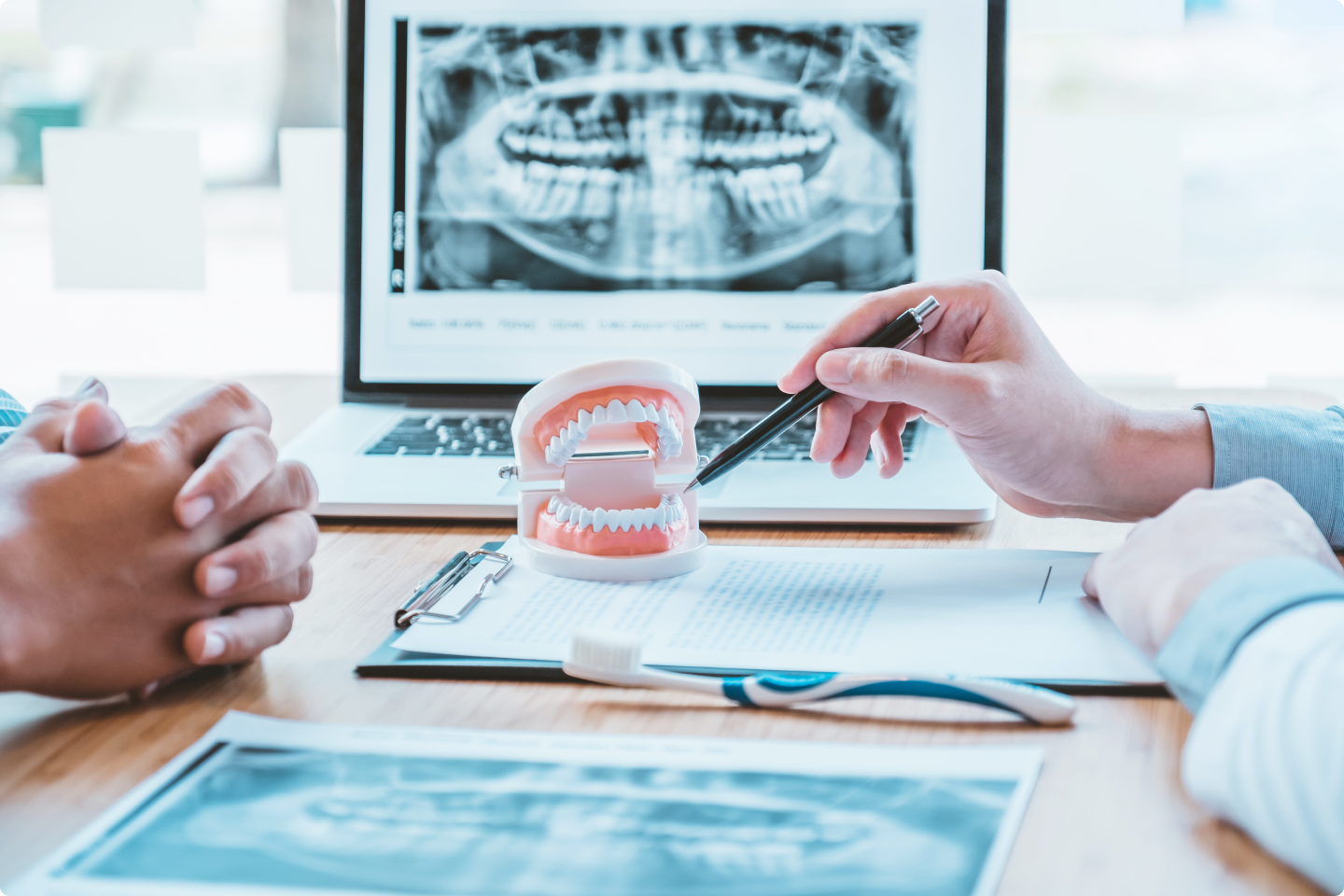
Oral Cancer Screening
Oral Cancer Has Been on the Rise Over the Past Decade.
For this reason Dr. Drisdale screens for signs or symptoms during routine examinations.
Your Guide to Emergency Dentist in Midland TX
Obstructive Sleep Disorders
Awaken to Restful Nights, Breathe Easier with Our Sleep Apnea Solution
Dr. Drisdale plays an integral role in identifying potential obstructive sleep disorders like sleep apnea.
He assesses symptoms like snoring, frequent pauses in breathing during sleep, and daytime fatigue, usually noted during dental examinations.
Custom oral appliances may be recommended to maintain an open airway during sleep, improving overall health and reducing the risks associated with these conditions.


Diagnosis
After conducting a thorough dental examination, Dr. Drisdale carefully analyzes your oral health and identifies any potential issues. With clear communication and empathy, he delivers a diagnosis, explaining the findings and their implications.
At this point Dr. Drisdale discusses the recommended treatment.
Treatment Planning
Once you have the diagnosis, based on your dental examination, you can proceed with treatment planning. Dr. Drisdale carefully considers your oral health conditions, taking into account the diagnosed issues and their severity. Using his expertise, he formulates a comprehensive treatment plan tailored to your needs.
The plan outlines the necessary procedures, timelines, and potential alternatives, aiming to restore and improve your oral health effectively.
This is a great time to discuss the treatment plan with you, ensuring you understand the proposed interventions and ask any questions you may have.


